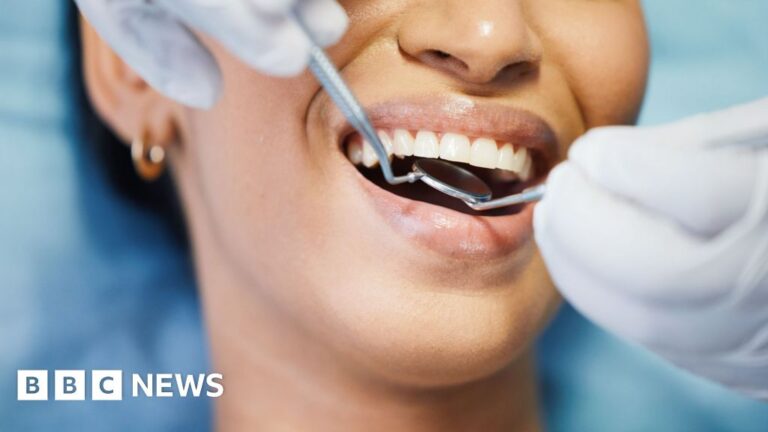

The Department of Health (DoH) has secured a derogation from the new EU mercury regulations.
Northern Ireland dentists can continue to use dental amalgam until 31 December 2034 or until the date agreed by the global Minamata Convention, to which the UK is a signatory, whichever is earlier.
The EU wanted to ban mercury-based fillings (dental amalgam) in dentistry on January 1, 2025.
The ban would have applied to Northern Ireland because it still follows some EU rules as a result of its post-Brexit deal, the Windsor Framework.
The Department of Health said the deal with the EU comes with a number of “achievable” conditions, mainly about reporting and demonstrating continued progress in reducing the use of amalgam.
“Tangible benefits”
The Department of Health said it was a priority it was urgently taking to the new UK government when they took office, given the impact on patients and practices across Northern Ireland.
“I am very pleased that this has been secured and that the mercury phase-out can proceed in a much more planned way over the coming years,” said Health Secretary Mike Nesbitt.
“For many months, the department has been working closely with officials from the UK Cabinet and the Department of Health and Social Care, as well as the Department of Agriculture, Environment and Rural Affairs and the Executive Office to support a strong and compelling case for why the Northern Ireland needed this derogation,” he explained.
“I am very pleased to see our efforts translate into tangible benefits for patients and professionals in this way.”


Dental amalgam is a mixture of metals, including silver, tin, copper and mercury, and is the most common type of filling used to repair a tooth cavity.
Although amalgam fillings “may release low levels of mercury vapour, particularly when they are placed or removed, there is no evidence that exposure to mercury from amalgam fillings has harmful effects on health,” according to the NHS.
However, the European Commission describes mercury as a “very toxic substance”.
Under post-Brexit trade rules, aspects of EU law still apply in Northern Ireland.
This ban means that it will not just be illegal to import mercury fillings, but to use them (except in exceptional circumstances).
Dentists in Northern Ireland they said they were extremely unprepared to work without dental amalgam and that patient care would be affected.
They said they are already at crisis point and losing money doing most routine surgeries and fillings etc unless they are private.
Dentists claim that dental amalgam is safe and has been used for a century.
Democratic Unionist Party leader Gavin Robinson welcomed the derogation.
“I am pleased that common sense has prevailed and that a firm and workable agreement has been reached,” he said.
“The safeguards we have secured have been instrumental in bringing London and Brussels to this place.”
“Ray of hope” for dentistry
The British Dental Association (BDA) says dental amalgam is safe and that it has been used and studied extensively for 150 years as a restorative material.
“A ban on dental amalgam in 2025 could spell the end for NHS dentistry in Northern Ireland,” said BDA Northern Ireland committee chair Ciara Gallagher.
“We sounded the alarm and fought tooth and nail for a workable solution. This delay is a ray of hope for a service that has been brought to its knees and could not bear further financial pressure.”
Analysis: John Campbell, BBC News NI business editor
There are two ways the Stormont Assembly can try to prevent new EU laws from being implemented in Northern Ireland if it believes they will have a negative impact on everyday life.
The Stormont brake And the implementation proposals are both subject to a veto – it is ultimately up to the UK government to decide whether to use the veto.
Alternatively, we could look at what has happened in this case: the EU and the UK have reached some kind of compromise, the issue is resolved and the Convention does not need to get involved.
The hope is that in future, as EU rules are drafted, potential impacts on NI can be understood and mitigated at an early stage rather than needing a last-minute fix.



